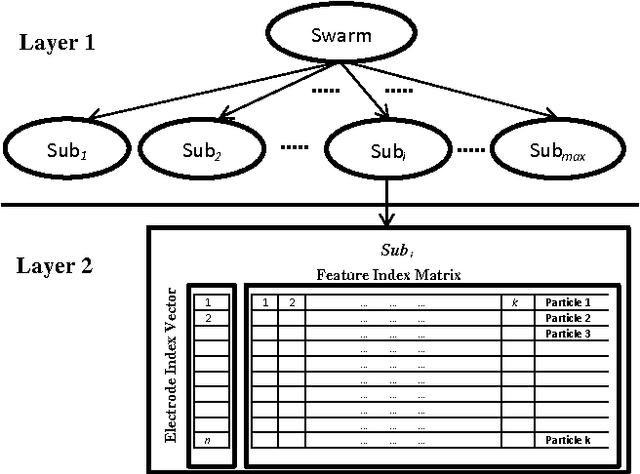David M. W. Powersa
Reducing training requirements through evolutionary based dimension reduction and subject transfer
Feb 06, 2016



Abstract:Training Brain Computer Interface (BCI) systems to understand the intention of a subject through Electroencephalogram (EEG) data currently requires multiple training sessions with a subject in order to develop the necessary expertise to distinguish signals for different tasks. Conventionally the task of training the subject is done by introducing a training and calibration stage during which some feedback is presented to the subject. This training session can take several hours which is not appropriate for on-line EEG-based BCI systems. An alternative approach is to use previous recording sessions of the same person or some other subjects that performed the same tasks (subject transfer) for training the classifiers. The main aim of this study is to generate a methodology that allows the use of data from other subjects while reducing the dimensions of the data. The study investigates several possibilities for reducing the necessary training and calibration period in subjects and the classifiers and addresses the impact of i) evolutionary subject transfer and ii) adapting previously trained methods (retraining) using other subjects data. Our results suggest reduction to 40% of target subject data is sufficient for training the classifier. Our results also indicate the superiority of the approaches that incorporated evolutionary subject transfer and highlights the feasibility of adapting a system trained on other subjects.
 Add to Chrome
Add to Chrome Add to Firefox
Add to Firefox Add to Edge
Add to Edge